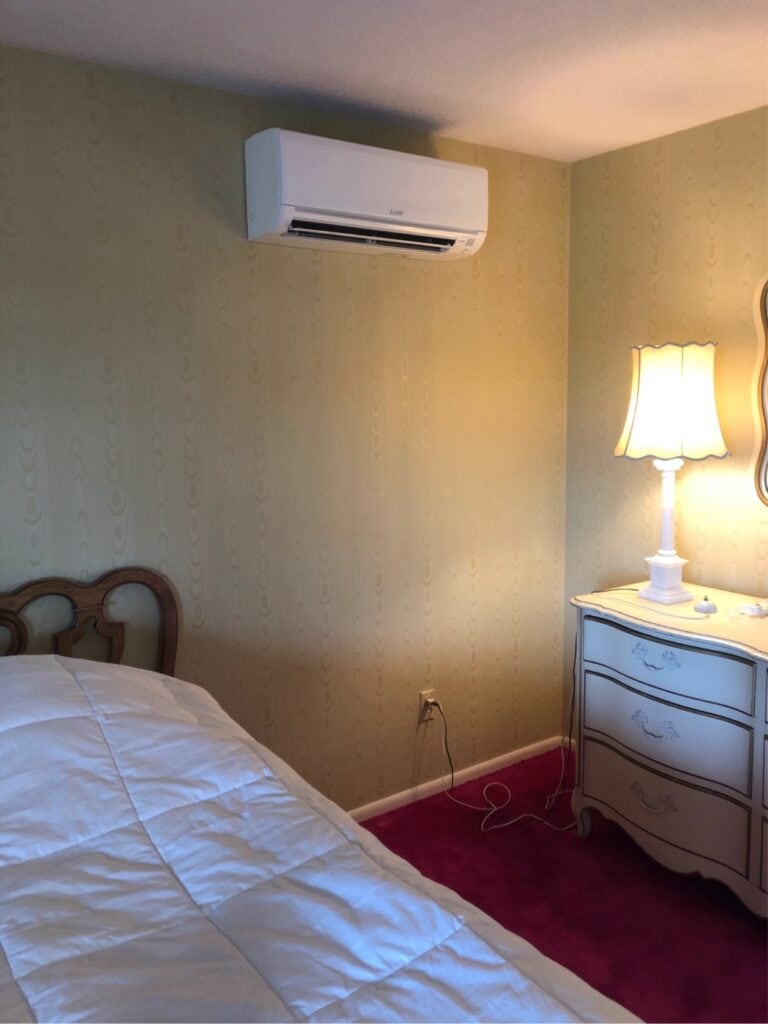How To Check (And What To Do) If A Home Has An Old Oil Tank

Oil heat used to be very common in Cape May and Atlantic Counties. With new construction and more townships converting to gas, we see fewer and fewer homes using oil. And, unfortunately, that means more chances that your home — or one you’re looking to buy — has an old out-of-service oil tank on the property.
Since many homes had underground tanks, they’re not always easy to find. Over time, plenty of homeowners removed, filled with sand, or otherwise properly decommissioned them.
But, there’s always the chance that there’s an environmental — and potentially expensive — hazard lurking under your house. Fortunately, it’s a problem you can anticipate if you know what to look for.
In this article, we’ll let you know how to spot an old buried oil tank. And, we’ll give you some signs to watch for in case the tank is leaking — that goes for an out-of-commission one or if the home still uses oil heat.
Finally, we’ll talk about what to do if you find an old tank. And your options for upgrading if you’re ready to get off oil in your home.
Unfortunately, Broadley’s doesn’t handle tank removal and soil remediation. But, we can help you convert your heat source, answer any general questions about oil tanks and heat, and point you in the right direction for your home in South Jersey.
Read More: How To Prepare Your HVAC System When Selling Your Home
Does Your South Jersey Home Have An Old Buried Oil Tank?

The best way to discover an old, out-of-service oil tank buried on a property in South Jersey is to check for a vent and filler pipes coming out of the ground. If previous homeowners neglected the tank, or if no one adequately decommissioned it, these may still be there.
Oil companies would have used the filler pipe to make deliveries. And, the vent pipe displaces the air in the tank when you’re getting an oil delivery.
You’ll often spot these coming out of the ground right near the basement, on the outside of the house. If that tank’s inside, they’ll stick out of the exterior wall.
Old Oil Tanks And Home Inspections
With any luck, a seller will know about an old tank and list it on the seller’s disclosure. But it’s always possible they don’t know about it either. In these cases, a home inspector may discover it.
They’ll know to look for those pipes or perhaps evidence of oil lines in the foundation wall. At that point, they’ll let you know there’s a big possibility that the house still has an old underground tank.
You can work out a reduced sale price or maybe seller’s assist to offset the costs in those cases. You’ll not only need to get rid of the tank, but there’s also soil remediation.
Homeowners in the past have taken care of old tanks by filling them with sand. But today, a mortgage company won’t always approve the loan if you go that route. So, be sure to speak with your loan officer and realtor to make sure you’re all set on closing day.
Read More: Five Plumbing Problems For South Jersey Homebuyers
Five Signs An Oil Tank Is Leaking
According to the New Jersey Department Of Environmental Protection, there are six signs to watch for that indicate your oil tank is leaking:
- Continual Problems With The Oil Burner
- Stains On The Basement Wall Or Floor
- Oil Sheen In Your French Drain Or Sump Pump
- Smell Of Oil Far Away From The Burner
This list is primarily for active oil tanks. But, some of these apply to an old tank that’s corroded and now losing oil.
In particular, a sheen in your French drain can indicate an out-of-service tank that’s now leaking underground. What you’re noticing is oil in the soil that’s seeping into your basement the same way that water does.
However, call your HVAC company if you have oil heat and notice any of these problems. You’ll want to get ahead of the problem before it becomes bigger and more expensive to fix.
Read More: Oil-To-Gas Conversion Increases Energy Efficiency In Marmora, NJ
Oil-To-Gas Conversions In South Jersey
Natural gas is less expensive than oil heat, but you needed gas lines running through your neighborhood to use it. Now that more towns in Cape May and Atlantic Counties have service, oil-to-gas conversions are on the rise in South Jersey.
So, if you’ve discovered a leak in your old oil tank, now may be the best time to switch over to natural gas. Converting is simple and straightforward as long as there are lines in your neighborhood.
With Broadley’s, we’ll help you choose a new furnace, and we’ll talk a little about that next. Once you select the model, we’ll run a line from the main near your home and install the new furnace.
At that point, you can also opt to switch from electric to gas for your stove. We’ve found that most people prefer cooking with gas.
Case Study: Oil-To-Gas Conversion In Cape May Courthouse, NJ
More Options For Replacing Oil Heat
If you’re finally getting rid of your oil heat, you have even more options than a standard gas furnace. We’ll briefly go over two options.
Variable-Speed Furnace
One of the only advantages to oil heat is that it provides very warm heat. That is, it doesn’t take long at all for your home to warm up.
A regular gas furnace can’t heat quite as quickly. But, a model with a variable-speed blower will maintain the temperature you want for much longer.
With variable speed, your HVAC system won’t click on and off a few times an hour. Instead, it can switch to a low-power mode that produces just enough heat to keep you comfortable and prevent the temperature from drifting.
You’ll avoid temperature fluctuations this way. And, it actually costs less to run when your system doesn’t go on and off all the time.
Ductless Heating And Cooling

If gas isn’t available in your area, or you’re looking for different options, ductless heating and cooling may be the way to go!
These systems, often called mini splits, rely on an electric heat pump to transfer heat into your home in the winter and out of it in the summer. Like the variable-speed furnaces, they use Inverter technology to maintain the temperature all day and night.
This process is much more energy-efficient than burning fossil fuels, so you’ll save a ton on your utility bills. And, you can place air handlers in every room you want to treat, which gives you fantastic flexibility and customization options.
Read More: What Size Mini Split Do I Need For My Home?
Heating And Air Conditioning In South Jersey
Are you ready to upgrade the comfort in your home? Call or email Broadley’s today for a free consultation!. Whether you’re in Marmora, Upper Township, Avalon, Ocean City, or way down in Cape May, we’re here to help!
